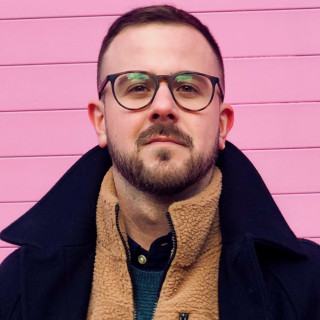From RN to FNP
Robin L. Hardwicke, PhD, NP is one of the first NPs in the world to be promoted to full academic rank of professor in and by a medical school. She is also the 2023 recipient of the American Association of Nurse Practitioners (AANP) State Award for Excellence in Texas, and has most recently been selected to be inducted as a fellow of AANP in June 2023. When asked how she got here, she said, “I cannot stress, or be grateful enough, for my mentors along the way. Having people who trust and believe in you is the key to a successful trajectory.”
Dr. Hardwicke’s career has spanned 32 years, starting with her work as an ICU nurse, and then as an NP in a level I trauma ED in Houston, TX.
“Most times, in either the ICU, or in the ED, I felt as though I just put a Band-Aid on patients and sent them on their way,” she said. “I may have helped to save their life, but I never saw them again. I never knew if any of our interventions helped to change whatever brought them to us in the first place. I would wonder, what kind of difference was I truly making?”
Dr. Hardwicke became more connected to her patients after she followed the advice of one of her first mentors in medicine, Stanley Lewis, MD, and joined the staff of a women's specialty HIV clinic. She had just had a baby and was exhausted, so the idea of a Monday to Friday job, with no weekend or holiday work, was appealing.
“At that moment, it was like there was a huge twist in my profession and psyche,” Dr. Hardwicke said. “I always thought that I was a very critically emergent style nurse that must act immediately. Then suddenly, my practice style comes to a screeching halt, and I essentially begin doing primary infectious disease care which is much slower paced.”
As part of her new role, Dr. Hardwicke was able to see that she “was making a difference in patients' lives” for the first time. Over the past 20 years, she has seen many of the same patients for HIV care. She shared that you can “truly see the magnitude of change that can occur in someone's life if you have time to listen to them, help provide them with new lifestyle information, and provide continuity of care for them.”
Mentors Matter
Dr. Hardwicke has had many mentors over the years, including the aforementioned Dr. Lewis, who helped with her transition from critical/emergency care to primary care.
After she started working autonomously at the HIV clinic at the University of Texas (UT), now called UT Health, she was hired as an assistant professor at UT Medical School, now called McGovern Medical School. After some time, she started to think about a promotion in academic rank and was referred by her boss, Philip Johnson, MD to speak with his mentor, the late Cheves Smythe, MD, the founding dean of UT Medical School.
As Dr. Hardwicke remembers their first meeting, “[Dr. Smythe] was reading one of his New England journals and had his feet kicked up on the desk. And he said, ‘Well, first off, you're gonna have to get some thick skin.’” Dr. Hardwicke was used to that after working in a professional space that was predominantly men and physicians, in contrast to her being a woman and a nurse. She asked what else she should do, and Dr. Smythe said, “You're gonna have to start doing what every other physician does,” meaning Dr. Hardwicke would have to be clinically productive, bring in revenue and research dollars, teach, and produce scholarly publications.
Dr. Hardwicke was already teaching ethics to second-year medical students, but took on more teaching as a result of Dr. Smythe’s recommendation. She started to teach problem-based learning and physical diagnosis, which also led to her bringing students into her out-patient clinic to teach them direct, hands-on patient care.
“Teaching students in the classroom forced me to fully, and comprehensively learn the science behind medicine, which can be limited in NP training. This allowed me to become a richer critical thinker, clinician, and researcher,” she said. Dr. Hardwicke shared that she hoped she “could articulate science in a way that teaches the few individuals who do cross her path something they may not have learned in their traditional medical training atmosphere. As our pool of traditional medical doctors decreases, it is highly important that we spend more time focusing on interdisciplinary training on each level so that we can provide the ultimate care to our aging population.” Hardwicke suggested that NP and MD students be trained in tandem through some courses so that each is aware of the other’s gifts.
In regard to her research responsibilities, Dr. Hardwicke was able to pique the interest of pharmaceutical companies by leading drug studies through the HIV clinic. However, she faced a hurdle when they wouldn’t take her as a principal investigator (PI) because she wasn’t an MD. Dr. Johnson, who agreed to initially hire Hardwicke into the division of general internal medicine, which was solely staffed by physicians at that time, stepped in and listed himself as PI while allowing Dr. Hardwicke to ultimately run the trials. He also promised to vouch for her when the time came up for a promotion. Now, after running or participating in more than 33 clinical trials, bringing in over $4.5 million dollars in support, Dr. Hardwicke has been allowed to act as PI in her first pharmaceutical trial. Unfortunately, not all pharmaceutical companies have been willing to fully remove that barrier, despite the FDA’s willingness to allow NP’s to be PI on clinical trials.
After much hard work and many sleepless nights, Dr. Hardwicke came back to Dr. Smythe to check in. She recalled that he said, “This is a good start, but since you are a nurse trying to get promoted in a medical school, predominantly staffed by physicians, you are going to have to do triple the work to show your worth. I have no doubt that you can do it but let us prepare you for that success and ensure that you become the first of your profession.”
Dr. Hardwicke persisted and was eventually promoted to associate professor, but didn’t stop there. She started speaking all over the country as an expert and key opinion leader on HIV and was able to make a grand step forward when she stood in for Dr. Lewis and presented data on ibalizumab as a late breaker at the 2006 International AIDS Conference. Originally, Dr. Lewis was going to have another physician present, but he encouraged Dr. Hardwicke to give the presentation as she had done so much work for the trial.
Approaching Naysayers
Dr. Hardwicke faced naysayers who didn’t necessarily think it was a good idea for her to be promoted in a medical school. However, she was reminded again by Dr. Smythe to have thick skin. In 2016, Dr. Hardwicke was finally promoted to a full-rank professor by the medical school.
“My greatest success is to watch and assist others to follow in my footsteps,” she said.
Dr. Hardwicke shared, “I'm hoping that they [NP’s] don't give up and they keep going. This isn't something that you're just going to achieve overnight. You're not going to achieve it in five or 10 years. It's going to take you a couple decades and hard work to truly get there.”
“There are still those that believe that physicians should be trained by physicians and continue to impose barriers to some levels of trainees being under my supervision,” she said. “I am completely OK with their choice. I am one person in a big profession, but I believe the best patient care will come from individuals who are interdisciplinary trained, no matter which side of the fence."
Dr. Hardwicke has seen many changes throughout her career, and she now tries to pay forward the mentorship that got her where she is today. “When I receive a handwritten note from a student or resident that I taught over a decade ago thanking me for our time, it warms my heart, and certainly supports why I continue to strive to be the best educator that I can,” Dr. Hardwicke said. “The reaction that I receive from a medical student who I teach, and watch administer their first injection, perform their first pelvic exam, or discover any abnormal finding is priceless.”
Editor's note: A previous version of the article incorrectly stated that Dr. Hardwicke was the first NP to be promoted to full professor in a medical school.
Image by GoodStudio / Shutterstock







